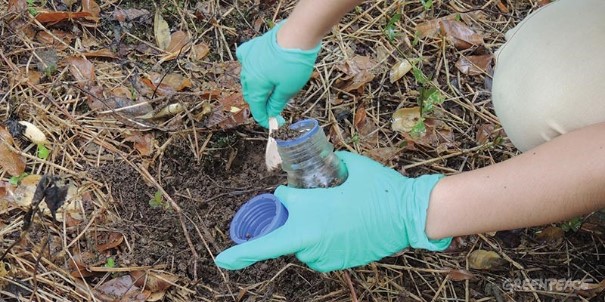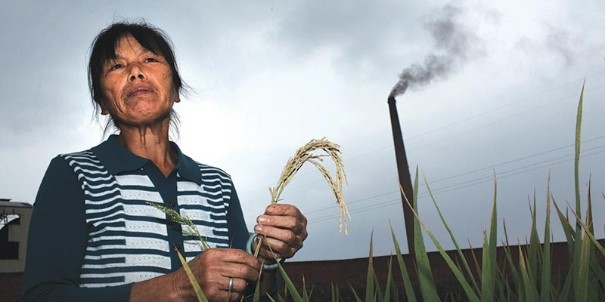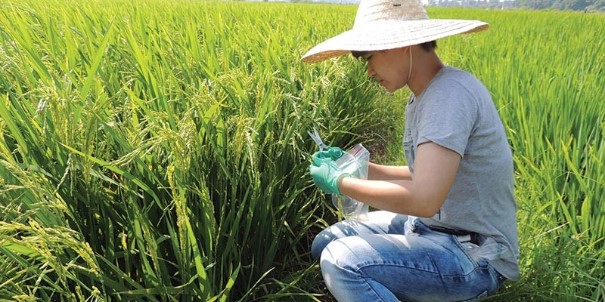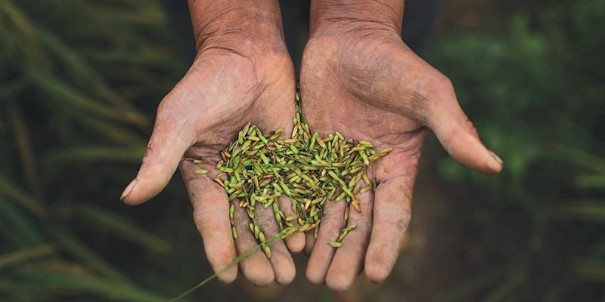I remember when I first visited the Hengdong Industrial Zone in early 2014. There was something eerie and deeply unsettling about the lush rice fields sitting adjacent to the openly polluting factories, whose seven giant stacks poured out toxic clouds day and night. These clouds contain the poisonous element cadmium, which filter deep into the soils of farmland within a 2.5km radius of the cluster of factories. The samples I sent to the Greenpeace laboratory showed levels of cadmium and lead at 200 times the national health standard. [1]
When the cadmium rice scandal broke out in 2013, China was shocked. Farmers and their families, villagers in the affected areas, and consumers of rice across the country were outraged that their staple food, and, for some, their source of income, had been so carelessly contaminated with a substance which causes lung and kidney problems, high blood pressure, a reduction of red blood cells and weakens bones.
And now, one of the first lawsuits of its kind to be accepted by a Chinese court will be heard next month. Residents have filed the lawsuit against Melody Chemical, the plant they say is responsible for high levels of lead in the blood of local children.
Four year-old girl in hospital for lead poisoning
This is significant. The case is a rare example of big companies being challenged by the people. The other ongoing case in the area involves a number of smelting factories and their responsibility for the cadmium rice crisis. The cases are a test both of the Hunan provincial government’s resolve to tackle the issue of pollution and the suffering it is causing across the province and of the recently revised national Environmental Protection Law.
I admire the bravery of the farmers and their lawyers to stand up against the offending smelting and chemical factories in Hengdong. And they are not alone in their will to take action.
Whilst doing field work in the area, I met a farmer whose entire crop was contaminated. I bought all the rice myself, to stop it from going to market. And I wondered – would other people be inspired to do the same?
So we took the campaign to Taobao, China’s largest online shopping website. We held a symbolic sale of cadmium tainted rice – The idea was that through buying the rice, conscientious consumers could help the farmers whose crops had been poisoned, and help support the campaign to stop pollution of crops. Within six hours the 500kg of cadmium rice bags sold out.
It’s clear that this issue touches not just local farmers and residents – the public also supports the campaign to rid China of cadmium rice.
The campaign and its supporters’ continued pressure has had results. The Hunan government closed the polluting factories and established a new government department with a remit to tackle the cadmium rice problem.
However, the problem was never something that could be solved by a few promises and some new policies. Monitoring of soil pollution levels must be stringent and persistent in order to prevent further pollution from occurring. Moreover, the problems which have already arisen are something which will affect generations to come. The legacy of cadmium and lead poisoning will be carried forever in the blood of local children.
The ongoing court case is a public test of the Hunan government’s sincerity in tackling the severe problems caused by pollution of harmful elements such as lead and cadmium. As the first of its kind, my hope is that it will also act as a model for other pollution affected towns and villages across China to protect themselves, their families and the environment.
Ada Kong is a senior campaigner at Greenpeace East Asia
[1] Greenpeace Research Laboratories Technical Report: Distribution of metals in soils from uncultivated land, soils from rice fields and in rice grown in the area of an industrial complex with metal smelting and processing facilities in Hunan Province, China




